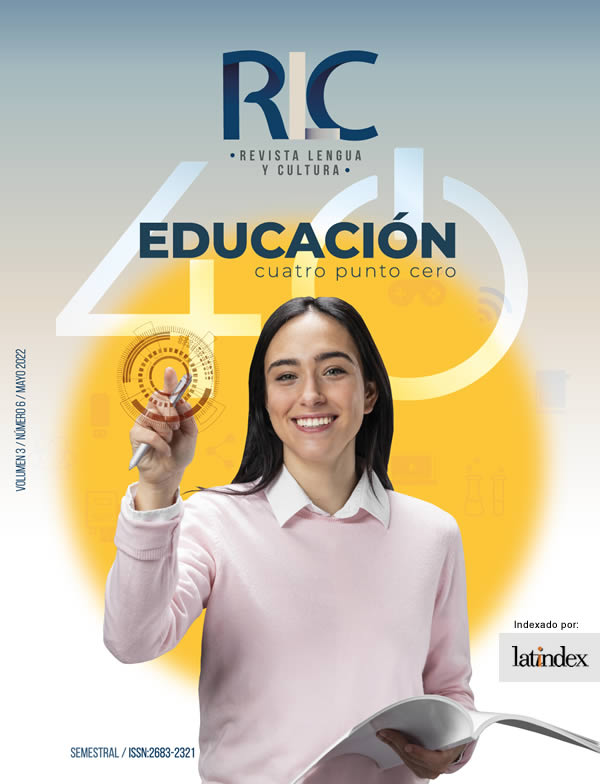Searching for an assessment method for the 21st century. Student board game design and rubrics
Abstract
Within the booming context of teaching learners the so-called 21st-century skills, tutoring teachers in novel teaching methods, approaches, and evaluation strategies, coupled with the massive trending use of games and gamification tactics, merge a necessity for teachers to be able to join together a series of requirements if they want to keep up-to-date as a part of the 21st century educational curriculum.
In the quest to find activities that motivate English language students at the Language Center in the Autonomous Metropolitan University at Iztapalapa and Azcapotzalco campuses, it was decided to use a game-oriented activity. In many cases, a game-based approach has been used as a pedagogical activity that transmits knowledge; however, the possibility to create knowledge and to use games as evaluation tools has been set aside. Having analyzed learners’ perspective on the overall activity, it was decided that the assessment strategy needed deeper examination so that an implementation model could be proposed. It was considered that the rubrics used had the opportunity to be enriched. Thus, the types of rubrics and their characteristics were further investigated so that the rubrics initially used could be re-elaborated and improved. After the theoretical research, it was concluded that even though rubrics pose a positive assessment tool, they do need thorough planning and evaluation.
Downloads
References
Andrade, H. G. (2005). Teaching With Rubrics: The Good, the Bad, and the Ugly. College Teaching, 53(1), 27–31. https://doi.org/10.3200/ctch.53.1.27-31.
Belland, B. R. (2012). The Role of Construct Definition in the Creation of Formative Assessments in Game-Based Learning. In Ifenthaler, D., Eseryel, D. and Ge, X. (Eds.), Assessment in Game-Based Learning. Foundations, Innovations, and Perspectives (pp. 29-42). Springer.
Boud, D., Falchikov, N. (2006). Aligning assessment with long‐term learning. Assessment & Evaluation in Higher Education, 31(4), 399– 413. https://doi.org/10.1080/02602930600679050.
Brookhart, S. M. (2018). Appropriate criteria: Key to effective rubrics. Frontiers in Education 3(22). https://doi.org/10.3389/feduc.2018.00022.
Chee, Yam San. (2016). Games-to-teach or games-to-learn: Unlocking the power of digital game-based learning through performance. Springer.
Gee, J. P. (2003). What video games have to teach us about learning and literacy. Palgrave Macmillan.
Ifenthaler, D., Eseryel, D. and Ge, X. (2012). Assessment in Game-Based Learning. In Ifenthaler, D., Eseryel, D. and Ge, X. (Eds.), Assessment in Game-Based Learning. Foundations, Innovations, and Perspectives (pp. 1-9). Springer. Kim, Jinsook. (2019). Effects of rubric-referenced self-assessment training on korean high school students’ English writing. English Teaching 74(3), 79-111.
Piirto, J. (2011). Creativity for the 21st Century Skills. How to embed creativity into the curriculum. Sense Publishers.
Sevy-Biloon, J. (2017). Different reasons to play games in an English language class. Journal of Education and Training Studies 5(1) 84-93.
Shaffer, D., Squire, K., Halverson, R., & Gee, J. (2004). Video games and the future of learning. http://www.academiccolab.org/resources/gappspaper1.pdf.
Shute, V. J., Ke, F. (2012). Games, Learning, and Assessment. In Ifenthaler, D., Eseryel, D. and Ge, X. (Eds.), Assessment in Game-Based Learning. Foundations, Innovations, and Perspectives (pp. 43-58). Springer.
Stauffer, B. (March 19th 2020). What are 21st Century skills? Applied Educational systems. https://www.aeseducation.com/blog/what-are-21st-century-skills.
Vercelloti, M.L., McCormick D. E. (2021). Constructing Analytic Rubrics for Assessing Open-ended Tasks in the Language Classroom. Teaching English as a Second Language Electronic journal (TESL-EJ), 24(4). https://www.tesl-ej.org/pdf/ej96/a2.pdf.
Vos, N. Meijden, H. Denessen, E. (2011). Effects of constructing versus playing an educational game on student motivation and deep learning strategy use. Computers and Education 56(127-137). https://doi.org/10.1016/j.compedu.2010.08.013.
Copyright (c) 2022 Rosa Natalia Moncada Morales, María del Carmen Serratos Vázquez

This work is licensed under a Creative Commons Attribution-NonCommercial-NoDerivatives 4.0 International License.













